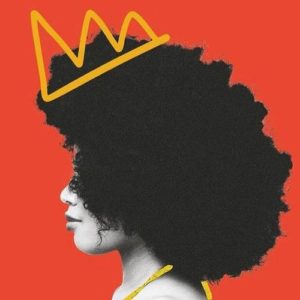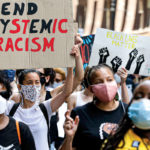Regardless of what we discuss, there is always so much polarization. And because these polarizing opinions are always in regard to topics of social justice, equity, and more, most people, if not all, gravitate towards the one “right” answer. I mean yes, you are correct to say, “Black Lives Matter” and ignorant to say, “All Lives Matter,” however, this doesn’t mean there isn’t grey area.
In 2020, so many reached a place where they recognized that education, elevation, and protection were critical aspects of proper alliances. In the moment, hundreds of thousands showed up in solidarity with Black people against police brutality without a second thought, and at that time, this was ideal. As we come to reach the end of 2021, though, this mentality may no longer be serving us.
In 2020, for immediate action to be taken, it was important that people showed up and made noise. This isn’t entirely bad, but not many people stopped to question why they were barricading their bodies between Black bodies and policemen, or how we all got there in the first place. And while these actions were necessary, and continue to be, too often people accept everything as truth because it is trending, rather than because they put actual effort forth in understanding what is happening.
Somehow, questioning has been likened to moral corruption. When questioning the one “right” answer within social justice, instead of welcoming conversation, people are shamed, automatically deemed as ignorant, and become the enemy. But how do we evolve, grow, and call people in if we can’t even stand to have a conversation?
Social justice is complex. Contrary to popular opinion, there is not a one size fits all answer. Sure, there are basic morals people should strive for, but once there, there is still much to understand and do.
We need to reject the notion that questioning things are bad. In fact, they are the opposite. We question something because we desire to learn. Learning helps us understand and, in turn, evolve.
Yes, curiosity is good, but for it to be helpful, it must be mindful. Whenever I have questions, it’s important that I also evaluate the intentions, possible impacts, and actions that may come from my curiosity and the answers I find. For instance, if my question is the result of me genuinely not knowing something, that’s okay. If a question is used to give rise to negativity, ignorance, and so on, it has ill intent. Also, please remember, we all have Google. The only time we ask members of marginalized communities’ trauma-based or educational questions is if they welcome them and are being properly compensated.
Next, consider the knowledge you may now know and evaluate how it may help you make thoughtful actions. A question I am learning more about at the moment, is how do I speak to the experiences of Black people, despite holding an immense amount of privilege as light-skinned, Black woman? One of the answers to this question is to recognize my privilege and use it to elevate and highlight the words and experiences of Black people who are darker than I am. After gaining this knowledge, I am then able to discern the impact of these actions.
Intent is great, but impact is greater. Something I am now evaluating is how do I elevate voices in a manner that is productive and honors other Black individuals and experiences. While my intention to elevate voices comes from a place of inclusion, an unintended impact could be centering myself in a discussion that isn’t for me to lead. Obviously, there is a lot to consider.
I don’t share all of this to overwhelm you. In fact, if you comprehend some of the basics, such as Black Lives Matter, privilege, implicit biases, and more, then you are moving forward. At the end of the day, that’s all I want for any of us in this journey: the commitment and effort towards moving forward and doing better. I am writing this simply to inspire you to move forward mindfully. They say this work is lifelong for a reason, so let’s make it count for something.


